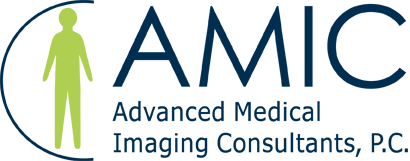Since its inception in the mid 1890s, medical imaging has revolutionized the field of healthcare by playing a crucial role in the early detection and diagnosis of various diseases and conditions. Through the use of advanced imaging technologies, medical professionals are able to obtain detailed images of the body’s internal structure, allowing them to identify potential abnormalities early. This increases the chances of successful treatment, which helps save lives.
One of the primary benefits of medical imaging is its ability to provide non-invasive or minimally invasive diagnostic techniques. Procedures such as X-rays, computed tomography (CT) scans, magnetic resonance imaging (MRI), and ultrasound enables physicians to visualize organs, tissues, and bones without the need for exploratory surgery. This not only reduces the risk and discomfort associated with invasive procedures but also allows for earlier detection since patients are more likely to undergo imaging tests than invasive surgeries.
Medical imaging also plays a role in the early detection of cancer. Mammography, for example, has been instrumental in detecting breast cancer at its early stages, when it is most treatable. Regular screenings using mammograms have contributed to a significant reduction in breast cancer mortality rates. Similarly, imaging techniques like colonoscopy and virtual colonoscopy help identify colon polyps or tumors, enabling early intervention and increasing the chances of successful treatment.
In addition to cancer, medical imaging aids in the early detection of osteoporosis, which occurs when the bone is weakened and mass decreases. At Advanced Medical Imaging Consultants, we offer a Dual-Energy X-Ray Absorptiometry (DXA) test, which is a bone density study used to determine whether you have osteoporosis or low bone mass. It is a fast, safe and painless test that measures bone strength and can predict your risk for bone fracture.
It is important to note that medical imaging is not only limited to detection but also plays a significant role in monitoring the progression of diseases and evaluating treatment effectiveness. Follow-up imaging tests allow physicians to track changes in the size, shape, or characteristics of lesions, tumors, or other abnormalities over time. This information is vital for making informed decisions regarding treatment plans and adjustments.
Medical imaging has become an indispensable tool for medical professionals in the early detection of various diseases and conditions. By providing detailed and accurate images of the body’s internal structures, it allows for the timely detection of abnormalities, leading to improved patient outcomes. From cancer to bone diseases to neurological conditions, medical imaging has revolutionized healthcare by enabling early intervention, increasing the chances of successful treatment, and ultimately saving lives.
Advanced Medical Imaging Consultants services many locations that offer diagnostic imaging for your diagnostic imaging needs. If you would like to learn more please give our office a call at 970-484-4757.

